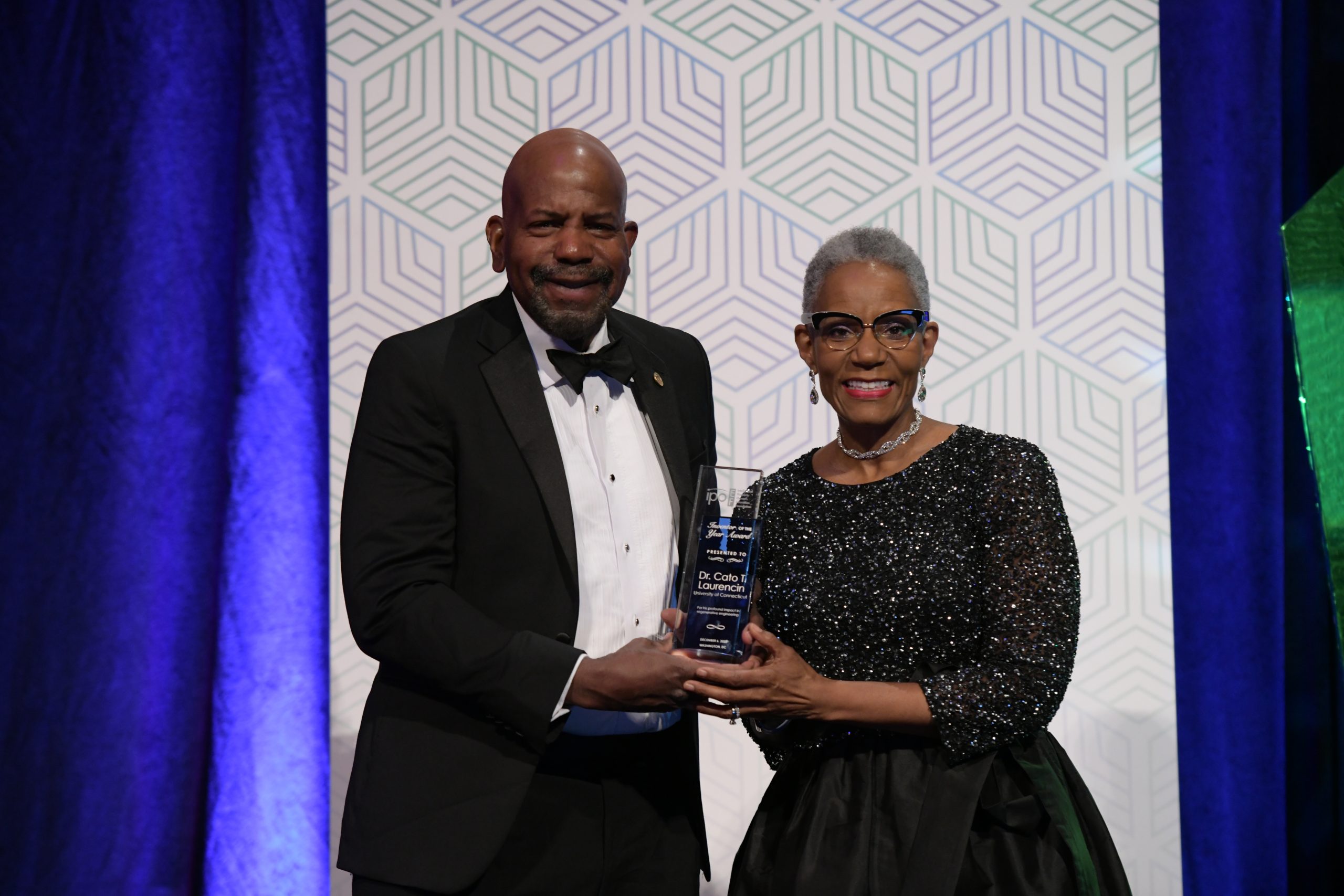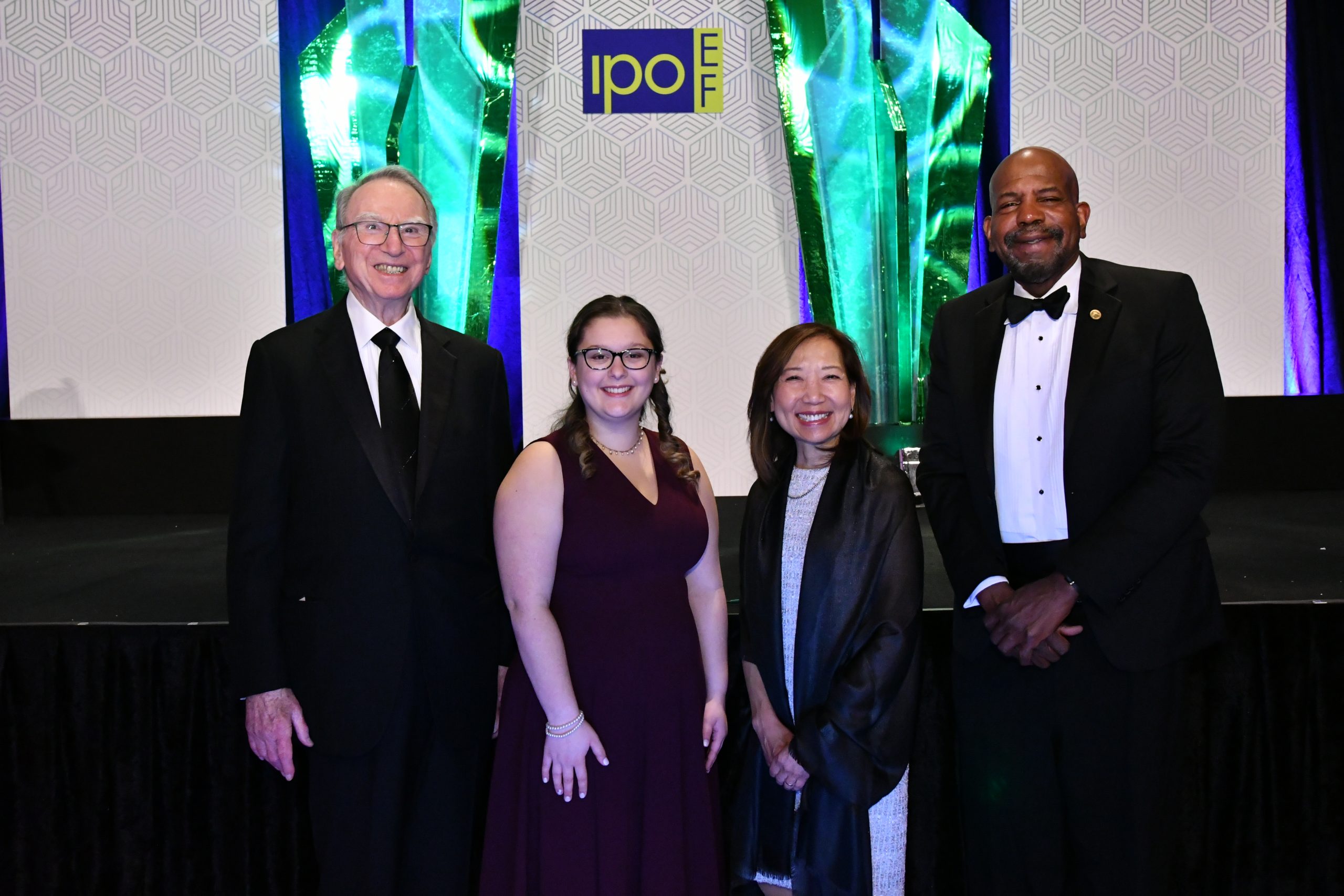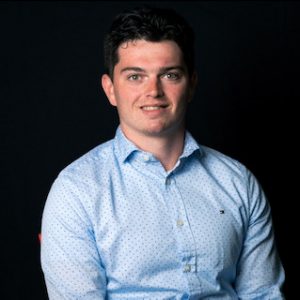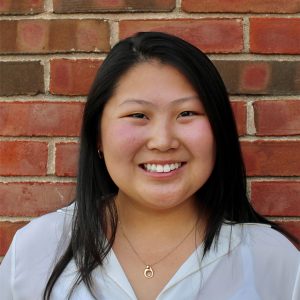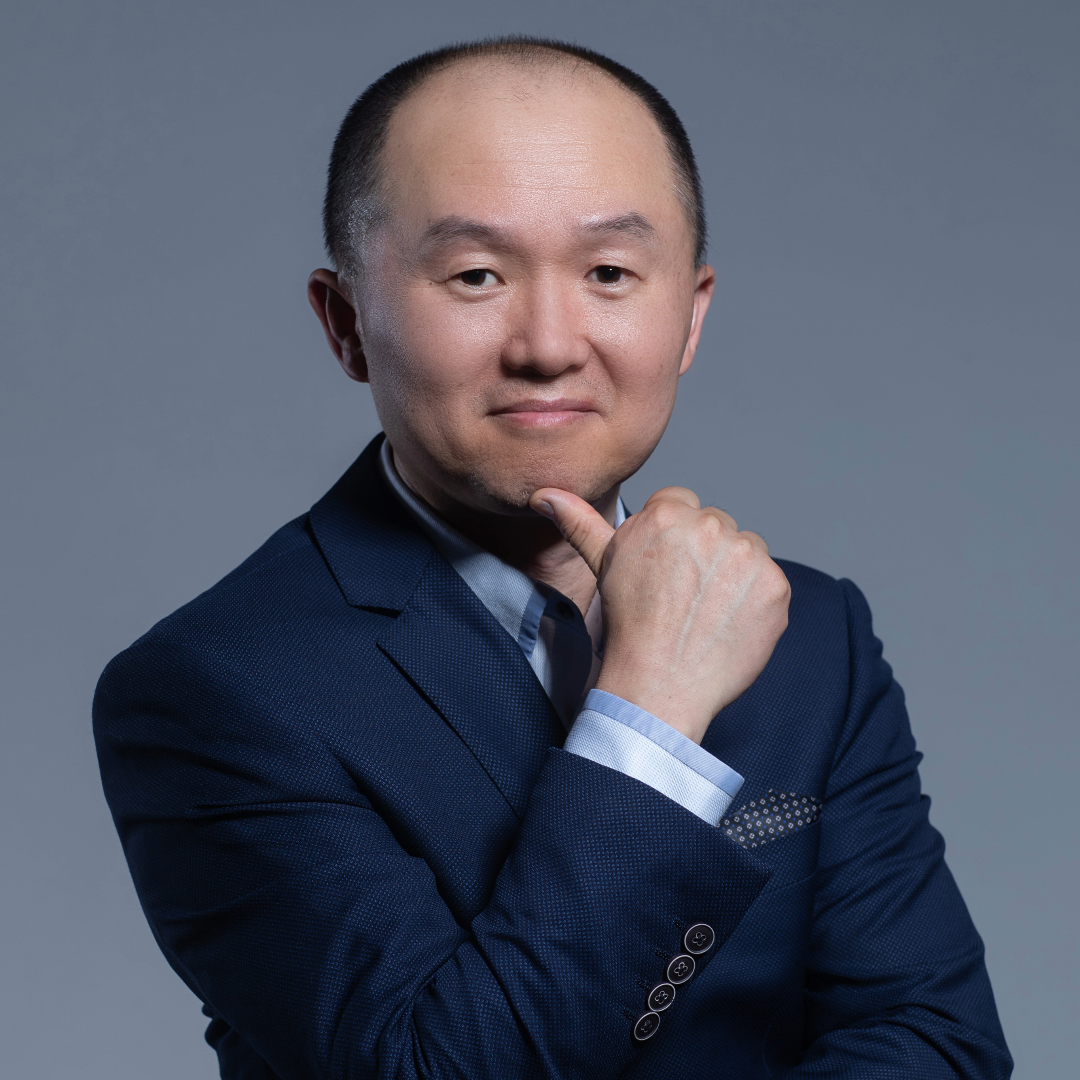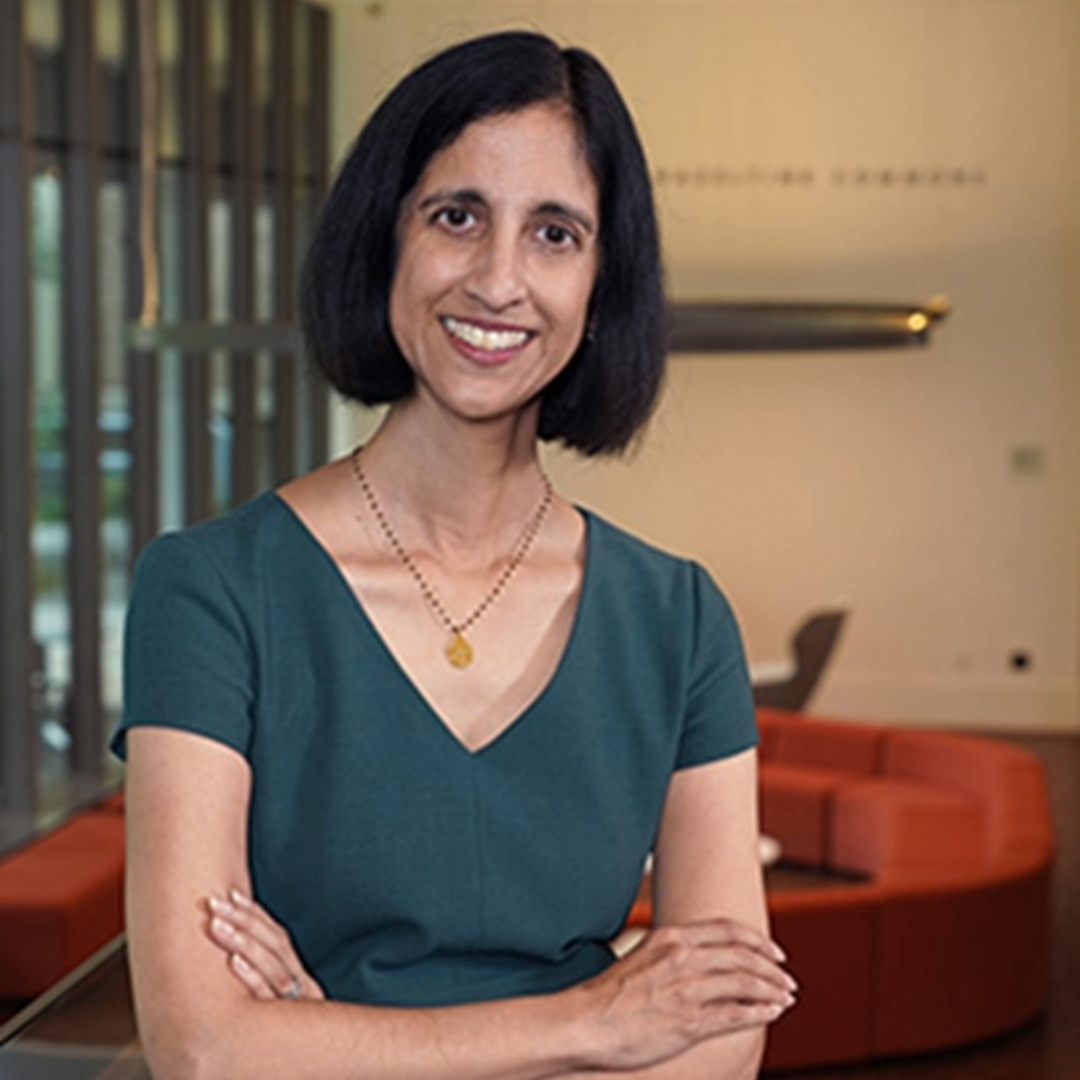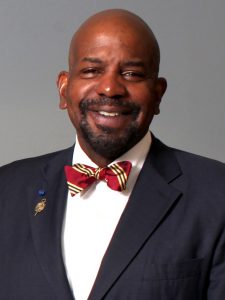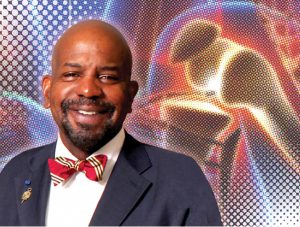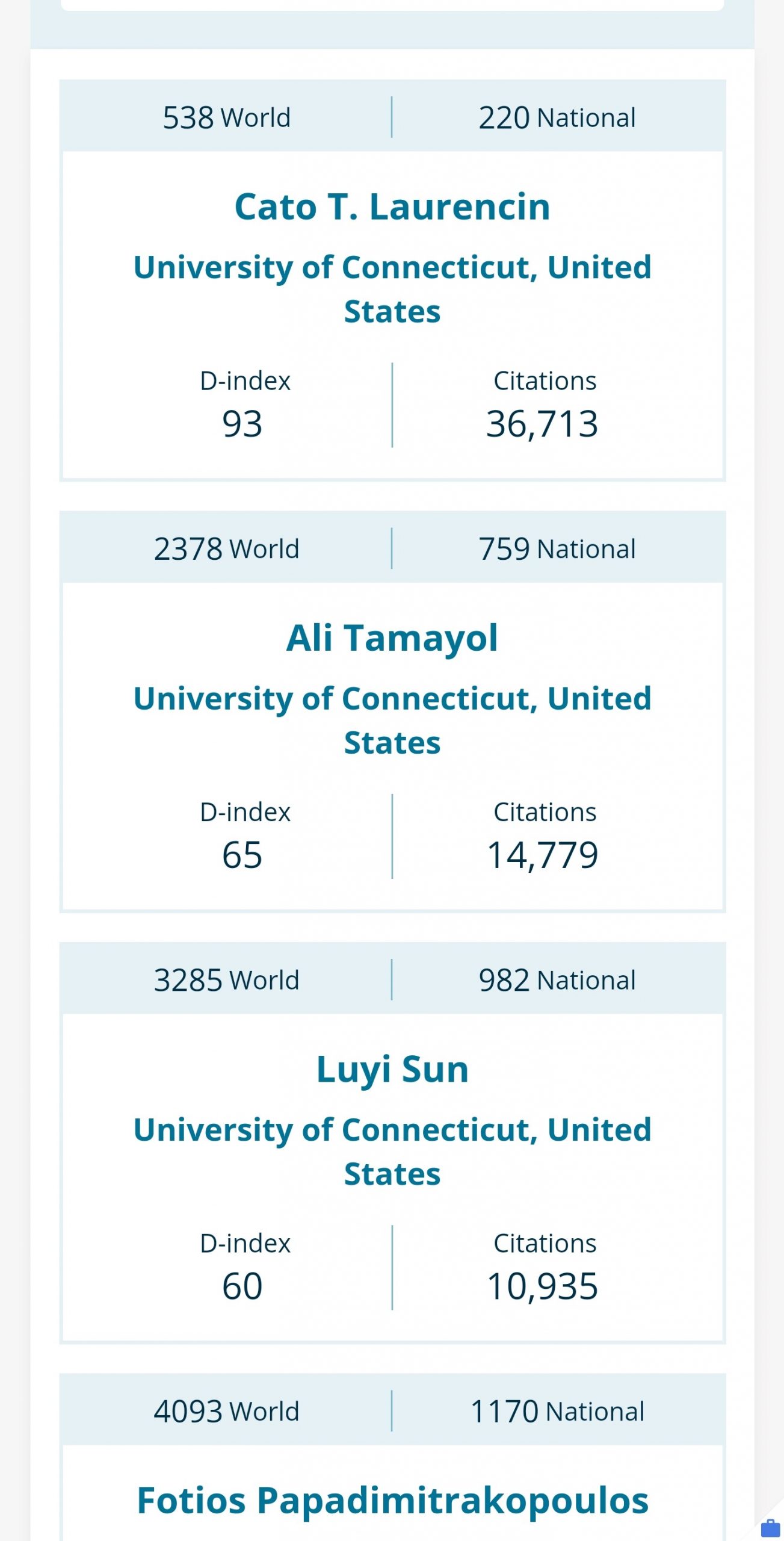On December 6th, Dr. Cato T. Laurencin, the University Professor and Albert and Wilda Van Dusen Distinguished Endowed Professor at the University of Connecticut, was named Inventor of the Year for 2023 at the Intellectual Property Owners Education Foundation (IPOEF) Awards Celebration. Dr. Laurencin is being honored for his pioneering contributions in the field of Regenerative Engineering which have led to the use of polymeric biomaterials in treating musculoskeletal conditions. Known as a leader in his field, Dr. Laurencin has also previously received the Priestly Medal for Chemistry, the Von Hippel Award for Materials Science, and the Jay Bailey Award for Biological Engineering.
The IPOEF Awards Celebration recognizes accomplishments in the fields of intellectual property (IP), innovation, and creativity and brings together IP professionals, judges, government officials, representatives from Capitol Hill, and attendees from companies and law firms around the world. The celebration honored individuals among four categories:
- Inventor of the Year: Dr. Cato T. Laurencin, University Professor, University of Connecticut
The Inventor of the Year Award recognizes the world’s most outstanding recent inventors and how they benefit the nation’s economy and quality of life. Dr. Laurencin is being honored as the 50th Inventor of the Year for his pioneering contributions in the field of Regenerative Engineering. Dr. Laurencin has distinguished himself from the current strategies to address musculoskeletal conditions by establishing the field of regenerative engineering to develop ways for people to regrow injured tissue and bone. He says “I am honored to receive this award. The field of Regenerative Engineering I founded has already produced impressive new technologies that have directly benefited people. Our work continues in complex tissue regeneration with the hope of creating even more breakthrough discoveries.” - Executive of the Year: Sandra Leung, Executive Vice President and General Counsel, Bristol Myers Squibb
The Executive of the Year Award is given to an individual for their commitment to the creation, promotion, and protection of intellectual property. Newly appointed CEO Dr. Christopher Boerner commented on Ms. Leung receiving the award. “What really distinguishes Sandy is her focus on integrity, being a true partner to the business and her dedication to our mission at BMS to discover, develop and deliver innovative medicines that help patients prevail over serious diseases. This award underscores the critical role of IP in ensuring that BMS and the biopharmaceutical industry can continue to bring new medicines to patients. Sandy knows that protecting IP is critical to BMS and our industry overall, and she demonstrates this with her actions.” - IP Champion: Irwin Jacobs, Cofounder and CEO Emeritus, Qualcomm
The IP Champion Award recognizes extraordinary leadership in advocating for the value of IP to stimulate the progress of innovation. Dr. Jacobs founded Qualcomm in 1985 with six others and developed the technology underlying the rapid worldwide expansion of cell phone usage for voice and internet access. As CEO through 2005 and Chairman through 2009, he led the growth from startup to Fortune 500 Company, now with over 50,000 employees worldwide and more than 140,000 issued and pending patents. Dr. Jacobs noted that Qualcomm’s growth was due to the ability to innovate, patent their innovations and license them. - Inspiration Award: Audrey Larson, Student, University of Connecticut
The Inspiration Award recognizes individuals who have made an impact by promoting and championing IP rights for and on behalf of members of underrepresented communities. Audrey is only a junior at UConn and received two patents before she graduated high school. She says that she is inspired by frustration or anxieties that she has about different world issues and invention and innovation has been a positive way for her to channel those feelings into action. One of her many accomplishments includes launching an online inventors club to encourage students, particularly those isolated and underrepresented in their communities, to learn about innovation and propel their IP efforts forward.
